On the 31st of October 2021 we reached the end of our year-long project in the Republic of Congo, supported by the European Union and the Organisation of African, Caribbean and Pacific States through #BIOPAMA. As we look back at what has been achieved we would like to express our sincere gratitude to all those involved with the BIOPAMA programme for the help they have provided. This project had two main aims – to increase the protection of the Lésio-Louna reserve and to improve the quality of the eco-tourism product developed to help support local communities. In this final report we are pleased to confirm these aims have been achieved and that the benefits from this project will continue long into the future.
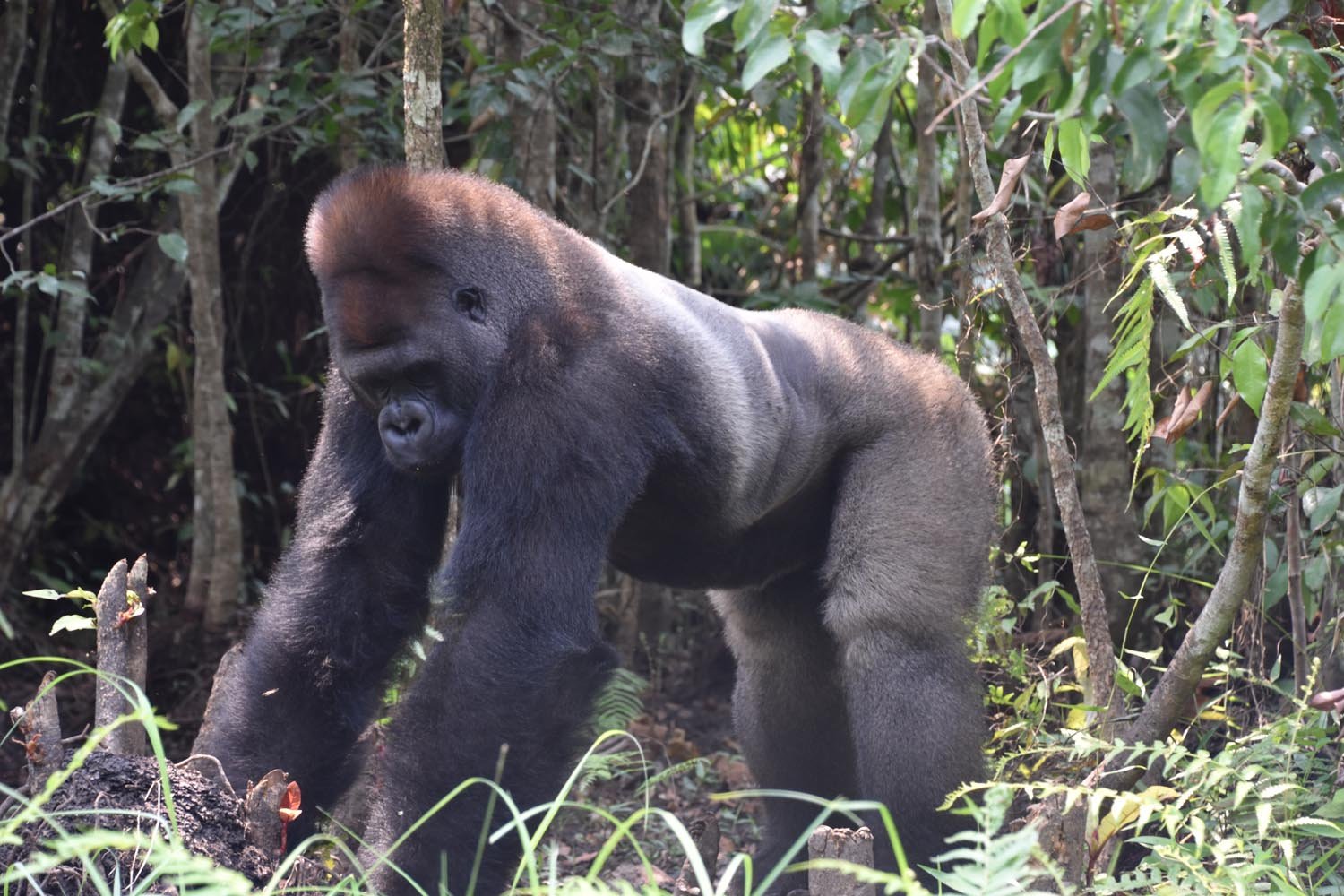 Western Lowland Gorilla © The Aspinall Foundation Congo
Western Lowland Gorilla © The Aspinall Foundation Congo
As the project began, on 1st November 2020, the world was firmly in the grip of the coronavirus pandemic and its effects were felt across all areas of this project. Goods and materials became harder to obtain, restrictions on gatherings and the concerns of rural communities limited awareness-raising, and the effects on worldwide travel had a devastating impact on tourism of all kinds. Certainly, these factors had played no part in our planning of the project back in 2019, and our team in Congo had to meet these additional challenges whilst also managing their own anxieties regarding the pandemic.
Overall, the most significant issue was the delay in receiving the 4 x 4 vehicle which plays an important role in increasing the protection of the reserve. The Lésio-Louna Reserve covers an area of 173,000 hectares and the terrain is a wonderful combination of savannah grasslands and gallery forest capable of supporting a wide variety of species. Many areas are remote and difficult to patrol on foot and the vehicle has allowed our eco-guards to regularly carry out motorized patrols reaching further into the protected area.
In addition, we have been able to introduce SMART monitoring. The patrols teams have been trained to use this new technology and with its GPS capabilities the patrols can effectively record observations and relay information efficiently to our team when they return to base.
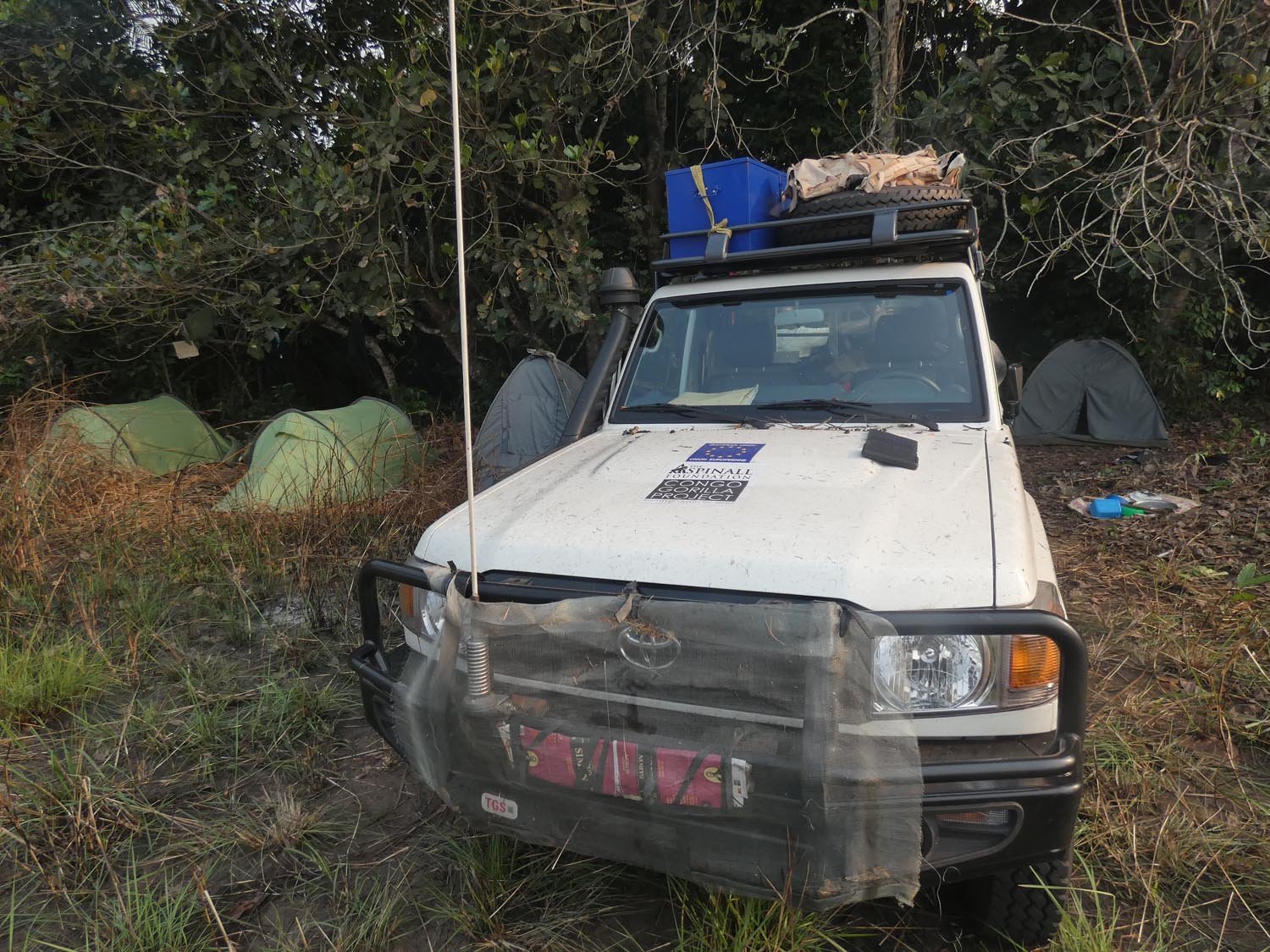 Motorised patrols give greater access across the reserve © The Aspinall Foundation Congo
Motorised patrols give greater access across the reserve © The Aspinall Foundation Congo
Although motorised patrols could not begin until July 2021, by the end of October this year the patrols have stopped illegal activities such as hunting, fishing, and market gardening. Where possible the perpetrators have been arrested, questioned and expelled from the reserve.
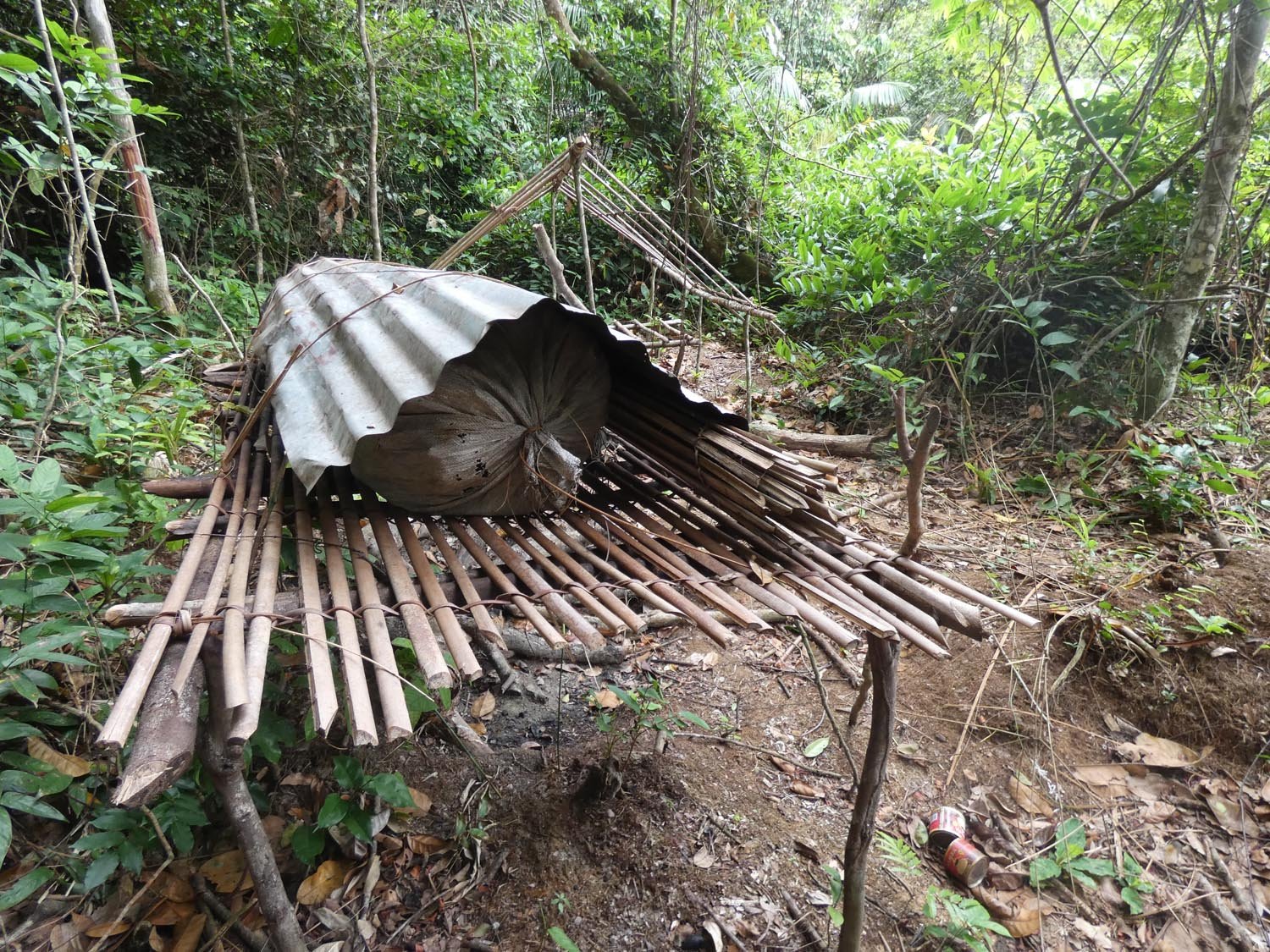
An illegal hunting camp & illegal land clearance © The Aspinall Foundation Congo
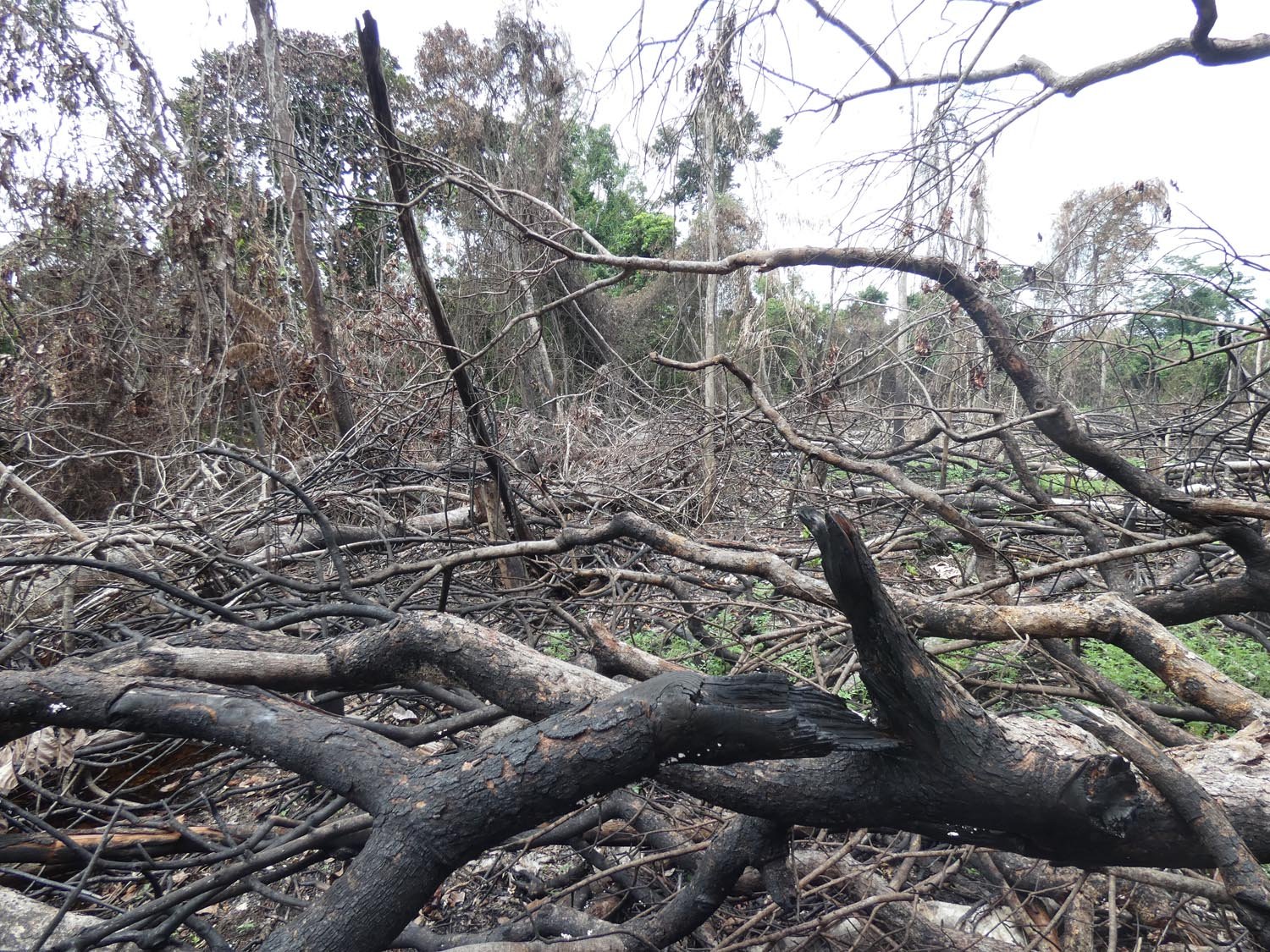
Camps have been destroyed, and motorcycles, canoes, and hunting rifles confiscated.
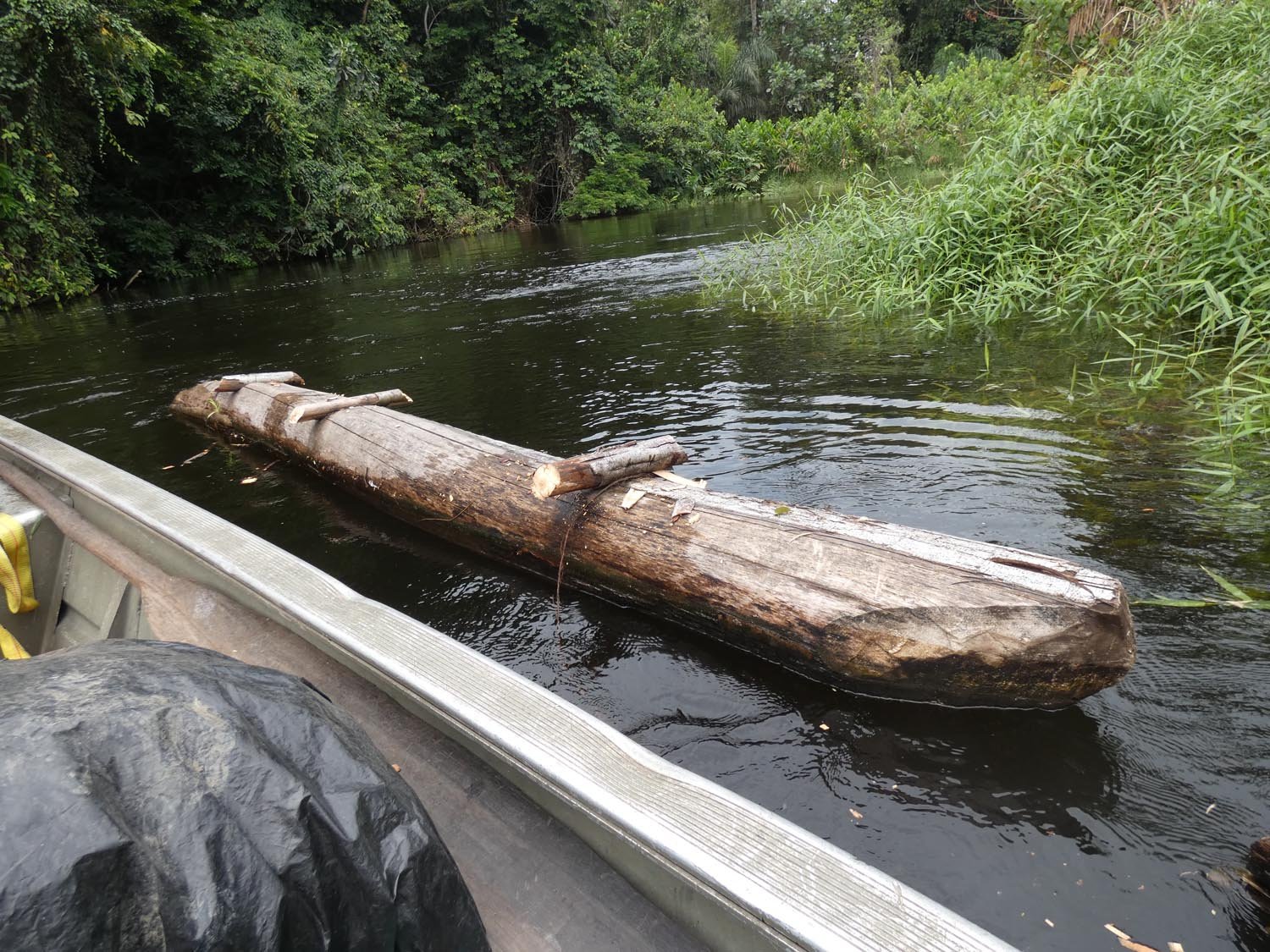 One of the confiscated makeshift canoes © The Aspinall Foundation Congo
One of the confiscated makeshift canoes © The Aspinall Foundation Congo
Using the GPS reference of the sites where illegal activities have been recorded allows us to build a more detailed picture of hot spots within the reserve. Increased biomonitoring has also benefited from the new SMART technology and we have gained a wider knowledge of the species that inhabit the area.
Bio-monitoring capabilities were also enhanced with training and additional camera traps. They offer a non-invasive opportunity to record the species present in the protected area and, as they are activated by motion sensors, they can record activities both night and day. Patrol teams record all sightings directly observed but the cameras not only cover a more comprehensive timeframe they also capture more elusive species, such as leopards, and those more nocturnal in nature such as giant pangolin. This information is invaluable as we plan future projects and for assessing the health of the reserve’s eco-system.
.jpg?width=1500&name=Setting%20camera%20traps%20(1).jpg) Setting camera traps © The Aspinall Foundation Congo
Setting camera traps © The Aspinall Foundation Congo
Supporting local communities through a capacity building programme has also been part of our work. There are twenty-three rural villages on the outskirts of the Lésio-Louna Reserve, all highly dependent on the natural resources available to them and this is one of the main drivers of the illegal activities. Eco-tourism is a potential source of income, and The Aspinall Foundation has been involved in the creation and management of an eco-tourism product for the past few years with the aim to both employ local people and also to allocate any income between the local communities and the cost of protecting the reserve. With the assistance of the BIOPAMA programme it has been possible to upgrade some aspects of the existing infrastructure to improve the visitor experience.
Developing eco-tourism during 2020 and 2021 has clearly been difficult due to the pandemic. However, since the improvements were made in January this year we are pleased to report there has been a marked and sustained increase in tourism activity. We are confident this growth will continue once restrictions on international travel have been removed
.jpg?width=1500&name=Boat%20trip%20with%20logo%20(7).jpg) Boat trips are part of the eco-tourism experience © The Aspinall Foundation Congo
Boat trips are part of the eco-tourism experience © The Aspinall Foundation Congo
Conservation programmes such as our Gorilla Protection Project in the Republic of Congo are long-term commitments. Damage to our planet’s vital eco-systems has been inflicted over decades and it will often take many years to change, particularly where rural communities and subsistence lifestyles are involved. As we continue our work in the Lésio-Louna Reserve the value of this project will extend far beyond its twelve month lifespan and we would like to end this article as it began – by expressing our gratitude to the European Union and the Organisation of African, Caribbean and Pacific States through #BIOPAMA.
You can find out more about this project on our dedicated webpage.
The Biodiversity and Protected Areas Management (BIOPAMA) Programme assists the African, Caribbean and Pacific countries to address their priorities for improved management and governance of biodiversity and natural resources. BIOPAMA provides a variety of tools, services and funding to conservation actors in the African, Caribbean and Pacific (ACP) countries.

This article has been produced with the financial assistance of the European Union and the Organisation of African, Caribbean and Pacific States through the BIOPAMA Programme The contents of this document are the sole responsibility of The Aspinall Foundation and can under no circumstances be regarded as reflecting the position of the European Union nor of the Organisation of African, Caribbean and Pacific States.

